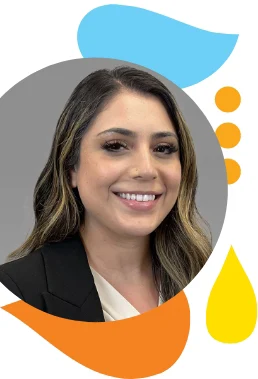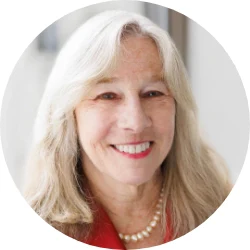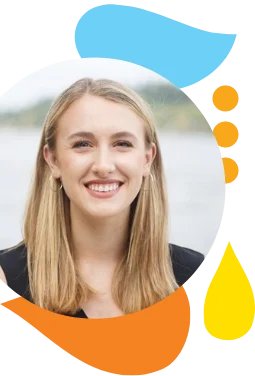Community Health Plan of Washington (CHPW) was founded in 1992 by Washington’s community health centers. CHPW is committed to Washington's health. To enroll in a Community Health Plan of Washington Apple Health (Medicaid), Medicare Advantage, or Individual & Family Cascade Select plan, you must be eligible and live in the service areas. This is not a complete description of benefits. Please contact us for more information.


2024 Annual Power of Community Report
Table of Contents
Improving Health Outcomes for Our Communities

As a local health plan founded by Community Health Centers (CHCs) across the state, we work with community partners to ensure that all people—regardless of race, ethnicity, immigrant status, disability, age, gender orientation, or income—have a fair and just opportunity to be as healthy as possible. Our work in 2024 demonstrated our recognition that improving health outcomes takes dedication and effort across all segments of our communities.
Extending access to quality care
CHPW was among four managed care organizations competitively selected by Washington State to offer Apple Health Expansion (AHE), a program to provide Medicaid-like health coverage to uninsured adults who do not qualify for federal health care due to their immigration status. As an early advocate for universal health coverage, CHPW staff partnered with community-based organizations (CBOs) and health care providers across the state to help community members learn about and apply to the program. The Apple Health Expansion coverage was launched on July 1, 2024, with limited funding to cover about 13,000 people. As a result of our work with community organizations and providers, more than 4,000 individuals enrolled with CHPW.
Our outreach and integrated care team members who are based in every region we serve, as well as CHPW’s Immigrant and Refugee Health Program Manager, Kush Doshi, engaged CBOs and provider partners in preparation for this expanded coverage and served as a trusted resource, setting the foundation for ongoing support for immigrant and refugees’ health care needs in Washington State.
Throughout the year, we provided 58 trainings with these partners and collaborated with 20 new community organizations serving immigrants and refugees in Washington. CHPW teams shared information about the new AHE program as it was being developed, and more broadly provided information on issues relating to immigrant and refugee wellness, health insurance, and resources for providers relating to culturally appropriate care.
We also teamed up with several CBOs to learn from their experience and understand the unique needs of their respective communities, including Central Washington Justice for Our Neighbors, African Community Housing & Development, Asian & Pacific Islander Coalition of Washington, and Kitsap Immigrant Assistance Center.
Moreover, CHPW and the Immigrant and Refugee Health Alliance, which we helped to found several years ago, have enhanced our partnerships with several coalitions, including the Washington Immigrant Solidarity Network, Northwest Health Law Advocates, Protecting Immigrant Families coalition, and the Coalition for Healthcare and Language Access.
“Our work at CHPW will continue to support and advocate for immigrant and refugee lives throughout Washington State, creating pathways for opportunities to live a healthy and safe life,” Doshi said, looking ahead.

CHPW's Connie Mom-Ching, Kush Doshi, Gerardo Perez, Cindy Heredia, Sandra Romero, and Hawa Elias with Dr. Someireh Amirfaiz of the New Americans Alliance for Policy and Research at the 2024 Refugee Community Building Conference.

Our work at CHPW will continue to support and advocate for immigrant and refugee lives regardless of citizenship status throughout Washington State, creating pathways for opportunities to live a healthy and safe life.
Kush Doshi
CHPW Immigrant and Refugee
Health Program Manager

Triaging to improve health access for families in need

CHPW's Marci Bloomquist, our North Sound Community Support Services team, and Cindy Heredia touring AFC with CEO, Dustin Johnson.
The Anacortes Family Center (AFC), in partnership with CHPW, launched a pilot program to help families in need to enroll in a health plan and access health care services. The AFC provides shelter for women, children, and families experiencing homelessness, in addition to comprehensive services to achieve self-sufficiency.
In 2024, AFC approached Marci Bloomquist, CHPW Senior Regional Manager, to support two primary goals they had to reduce financial barriers to care for families in economic hardship:
- Connect families to health coverage and ongoing primary care
- Reduce reliance on costly emergency rooms and urgent care
CHPW’s Cindy Heredia, Senior Account Manager on our outreach team, attended AFC’s Life Skills classes each quarter where she provided information about CHPW Apple Health (Medicaid) benefits. She also worked directly with AFC clients to help them enroll in a health plan or answer questions about their current health plan coverage.
Heredia shared, “I am incredibly proud of this partnership. Working alongside such a dedicated team, we've been able to provide families in crisis with the health care they need and deserve. The most fulfilling part of this collaboration is knowing that by offering clear guidance and personalized support, we’ve been able to alleviate the frustration and stress that so many families face when navigating complex systems.
By partnering with organizations community members know and trust, we can better address health needs promptly and compassionately. For example, when one client was able to get immediate health insurance coverage and schedule a life-saving oncology appointment the following week, it showed just how crucial this partnership is in bridging gaps in care.
From enrolling individuals in health insurance to connecting them with primary care providers, this partnership has been a lifeline for many, giving them the stability they need to focus on their families and long-term health.”
In 2024, 82 families were referred to the AFC/CHPW program, and more than 50 actively participated. Because of the program, participants had the opportunity to obtain health coverage, better understand their health benefits, and establish a relationship with a trusted medical provider, many for the first time in their lives.

The most fulfilling part of this collaboration is knowing that by offering clear guidance and personalized support, we’ve been able to alleviate the frustration and stress that so many families face when navigating complex systems.
Cindy Heredia
CHPW Senior Account Manager

Sharing insights nationally
Not-for-profit Safety Net Health Plans (SNHPs), like CHPW, play a critical role in providing health care for historically marginalized communities while recognizing and addressing the many obstacles that can stand in the way of accessing quality care.
CHPW was pleased to join the Association for Community Affiliated Plans (ACAP) in partnering with the Center for Health Care Strategies (CHCS) as they launched the second phase of the national Health Equity Learning Collaborative.
Focused on strengthening strategic planning based on local assets, context, and needs, and enhancing responsiveness to community and member needs with state agency priorities, the collaborative provides ongoing learning about best practices from health plans across the country.
The second phase kicked off in September and CHPW was among 10 health plans selected from a competitive applicant pool to participate. Ugbad Hassan, Quality Program Manager, Fathiya Abdi, Quality Program Manager, Coraima Newkirk, Health Improvement Program Manager, and Abha Puri, Member Experience Supervisor, represented CHPW to gather actionable insights from health plans across the country through the learning collaborative, and strengthen equity integration across organizational policies, programs, and practices.

CHPW's Abha Puri, Ugbad Hassan, Fathiya Abdi, and Coraima Newkirk at the ACAP Health Equity Learning Collaborative kick off.

“By centering accessibility in health care delivery, this collaborative effort represented a shared commitment to create more inclusive systems that can best serve all communities,” Hassan said.
We brought two initiatives to the second phase to solicit peer feedback and guidance:
- Community engagement and implementation of Community Advisory Councils
- Enhancing care for immigrant and refugee members
The program provided structured guidance on navigating the Safety Net Health Plan Equity Assessment, a comprehensive tool designed to evaluate and benchmark current equity practices. Through this rigorous assessment process, the team identified key gaps and opportunities for improvement, laying the foundation for data-driven strategies that promote sustainable change.
Additionally, the CHPW team shared several valuable learnings with the group from CHPW’s successes and opportunities in identifying and implementing equity-focused initiatives internally, addressing health disparities for our communities, and improving health outcomes for Washingtonians. CHPW had previously participated as one of 15 health plans in the first phase of the collaborative from July 2022 to June 2024.
By leveraging the strength of our peers, we can better serve our own communities. In sharing knowledge and resources, we’re able to support efforts well beyond Washington State.

Reaching milestones in supporting CBOs
In its fifth year, CHPW surpassed the $1 million milestone in grants awarded to community-based organizations (CBOs) that support historically underserved communities across Washington State.
In 2024, 25 CBOs were each awarded a $10,000 grant totaling $250,000 for the year. With the addition of this year’s grants, CHPW has provided more than $1.2 million to 81 CBOs across Washington State since 2020.

Established to support CBO partners that provide critical and responsive social services to people from communities who often experience the greatest health disparities, each year grants are given to organizations working to improve health outcomes for individuals through a broad range of services. CHPW collaborates with these CBOs and others, as well as community resources to coordinate assistance to meet an individual or family’s needs.
“Community-based organizations are vital in providing critical supports that contribute to the health of families and communities across Washington State, and we’re grateful for the relationships we have with these remarkable groups,” said Leanne Berge, CEO of CHPW and our parent organization, Community Health Network of Washington (CHNW).
“Advancing whole-person health is a mission that can only be achieved through collective efforts, and these grants are intended to support community partners providing needed services in tandem with medical care. We’re grateful to these organizations for their dedication, perseverance, and their unwavering commitment to ensuring that all individuals across the state have the opportunity to live their healthiest lives.”

CHPW Health Systems Innovations Program Manager Rachel Briegel (right) with Mockingbird Society Executive Director Natalie Lente at the 2024 Mockingbird Society Block Party fundraising event on October 10. The Mockingbird Society was a 2024 recipient of a community investment grant.

Community-based organizations are vital in providing critical supports that contribute to the health of families and communities across Washington State, and we’re grateful for the relationships we have with these remarkable groups.
Leanne Berge, Esq.
Chief Executive Officer
Community Health Plan of Washington/
Community Health Network of Washington

Robert Wood Johnson/U Chicago Sponsored Learning Collaborative
In September, CHPW, CHNW, and Washington State Health Care Authority (HCA) representatives met in Chicago for the Advancing Health Equity (AHE) Learning Collaborative Fall Convening as part of a 12-state learning collaborative. At the convening, members of the collaborative discussed the future of reducing disparities through care delivery and incentive programs. CHPW’s team also shared lessons learned and insights from CHPW’s Community Transformation Learning Collaborative Program, that was developed in 2021 as a part of this collaborative.

CHPW's Collen Haller, Victoria Gersch, and Kayla Salazar Poncet at the Advancing Health Equity Learning Collaborative in Chicago.

Programming to transform communities' health across CHCs
2024 was CHPW’s first year of implementing the Community Transformation Incentive, a restructured continuation of the Learning Collaborative program, a pivotal program to improve communities’ disparate health measures through partnership with Community Health Centers (CHCs).
Through CHPW’s membership with the national AHE Collaborative, which brought together the Washington State Health Care Authority (HCA), CHPW, and participating CHC partners working together to reduce health disparities, we created the Equity Learning Collaborative (ELC) program in 2021. This program provided upfront capacity funds to CHCs to support the goals of the program.
In 2024, CHPW’s Quality team launched the redesigned and renamed program marking a significant shift from capacity building to action aimed to incentivize improved health outcomes. Nineteen CHCs participated, an increase from the previous 15 who had participated in the earlier iteration of the program. As a part of the program, each CHC attended three learning sessions that covered key equity topics, met with cohorts comprised of CHPW staff and CHC peers, and completed three cultural responsiveness assessment reports, covering language assistance, equity data, and disparities analysis.
Each CHC received $50,000 in funding to use towards projects to reduce disparities and improve health outcomes more universally for their underserved populations. Of the many accomplishments made by participating CHCs in 2024, notable efforts included:
- Improving access to bilingual staff
- Implementing a patient navigator program
- Launching an in-house legal program
- Hiring and training Community Health Workers (CHWs)
- Supporting the opening of The Way Station’s Hygiene Center
“This program was a powerful way to bring CHCs together to collaborate, share resources and lessons learned, and strengthen our knowledge and ability to improve the health of our diverse communities.” Victoria Gersch, Quality Program Manager, explained.
As members of the collaborative driving programs like the Community Transformation Incentive Program, CHPW, CHCs, and the HCA are developing the next generation of Medicaid models to reduce health disparities in all communities across the state. This work is an integral part of CHPW’s broad quality improvement program designed to improve the health of all its members.


This program was a powerful way to bring CHCs together to collaborate, share resources, and lessons learned, and strengthen our knowledge and ability to improve the health of our diverse communities.
Victoria Gersch
Program Manager

- CUSTOMER SERVICE
- 1-800-440-1561
- (TTY: 711)
- [email protected]

- ADDRESS
- 1111 Third Ave
- Suite 400
- Seattle, WA 98101

- HOURS
- 8 a.m. to 5 p.m.
- Monday to Friday